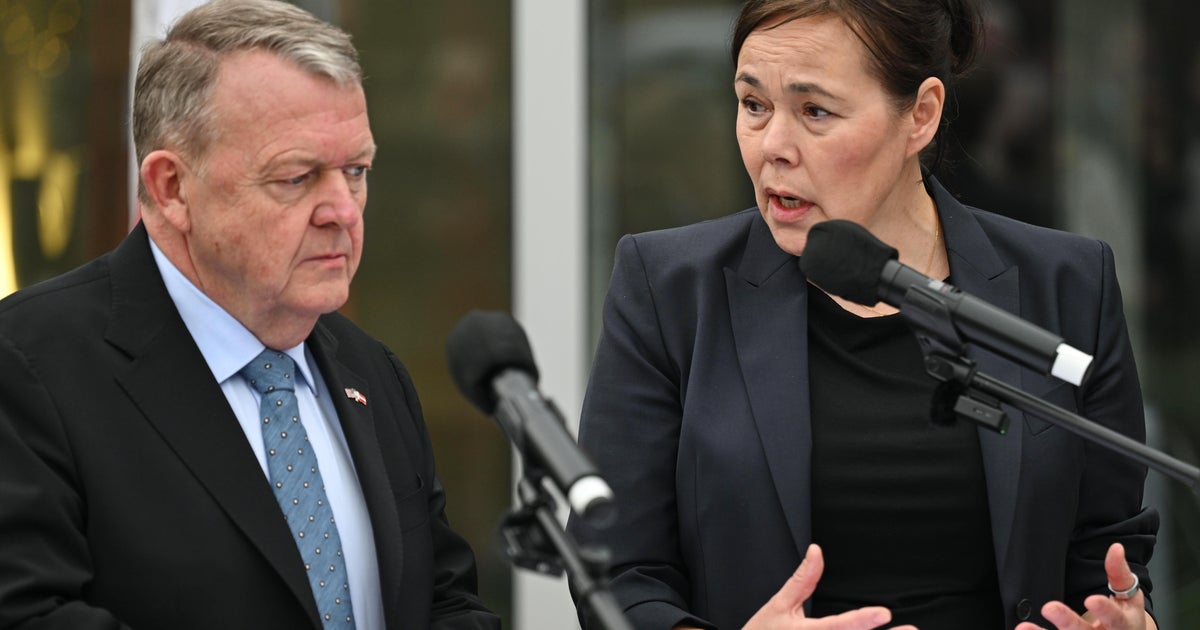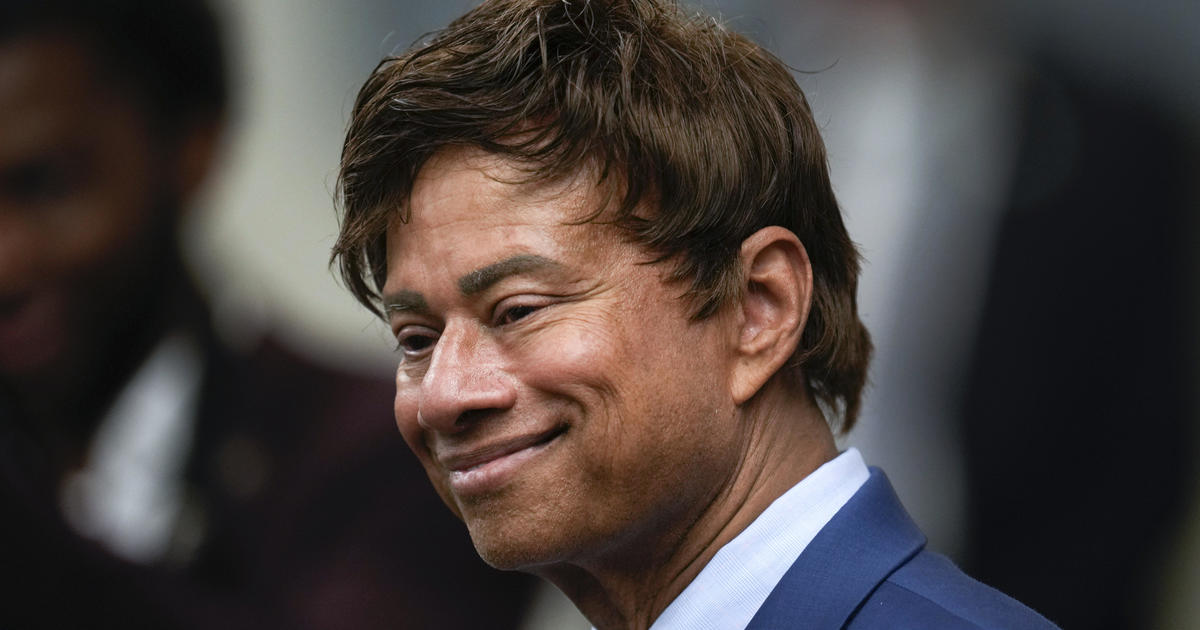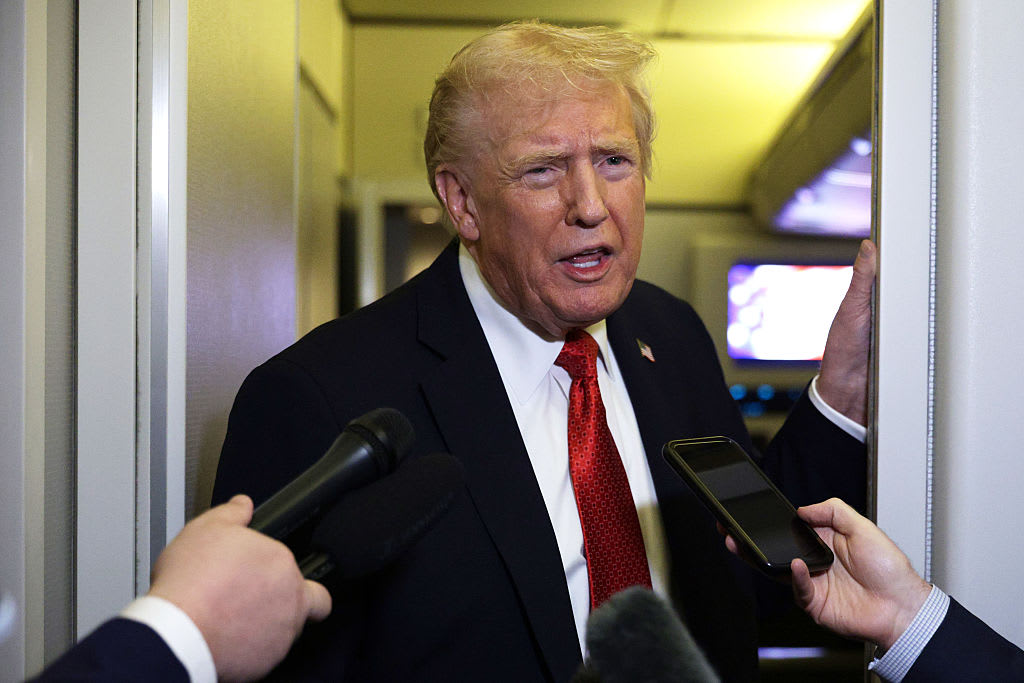Pence, Tillerson, Kelly meet with Central American leaders in Miami
Top Trump administration officials are affirming America's commitment to advancing Central America's economic prosperity -- despite a proposed budget that would cut U.S. efforts in the region by between 30 - 40 percent.
"Your success is our success," Vice President Pence told Central American leaders at a conference in Miami Thursday, which also included Secretary of State Rex Tillerson and Homeland Security Secretary John Kelly. Tillerson echoed those sentiments, and said that what happens in the Northern Triangle directly impacts the security and economic interests of the U.S., and the region on the whole.
Tillerson described the leaders of the northern triangle countries -- Guatemala, El Salvador and Honduras -- as committed and proactive. Direct U.S. aid was not a big topic of discussion. He praised them for their independence, for not approaching the U.S. "with their hands out," asking the U.S. for government investment. Instead, the secretary said, they took a "how do we act" and" what do we do" approach to the discussions.
The secretary of State also encouraged the countries to continue trying to curb corruption, minimize red tape that deters investment, and streamline tax codes.
Doing so, Tillerson said, "will improve the overall economic competitiveness of the Northern Triangle countries, and boost the willingness of private companies to invest in Central America."
Tillerson asked these governments to consider more private sector partnerships -- for instance, welcoming private companies' help in building up infrastructure in cities as urban populations grow.
The conference was taking place just a day before President Trump was to make his own visit to Miami -- he's slated to talk about his Cuba policy, which is expected to roll back at least in part the Obama administration's opening of U.S. relations with Cuba.
This U.S.-Central America conference, which was an idea generated by Tillerson and Homeland Security Secretary John Kelly during their trip to Mexico City, is an effort to further develop the relationship between the U.S. and the Central American countries.
The Trump administration also hopes that this will also help mend the fractured U.S.-Mexico relationship. At the end of the day, Mexican Foreign Minister Luis Videgaray commended the U.S. for putting together the gathering so quickly. This differs from circumstances of their last meeting, during Tillerson's and Kelly's first visit to Mexico. At that time, the relationship between Mexico and the U.S. was under strain. In the same week as their visit came an administration announcement that the U.S. immigration enforcement would be a "military operation," threatening all illegal immigrants with deportation across the Mexican border.
U.S. leaders are still stressing the need to secure the U.S. border. Pence promised that the U.S. "will make sure our borders are closed to those who do us harm and the drugs who ruin our families." Tillerson also referenced the need to drive down illegal migration when he spoke about the region's immense informal working sector -- reaching 70 percent of the labor force in 2016 -- and its repercussions.
"An important enabler is the support and the means for children to stay in school and continue their education, gain the basic skills that are necessary to participate in a more productive employment, thus providing a real alternative to stay home in their home country, rather than seeking their future through irregular migration," Tillerson said.
Tillerson also sounded a theme he has mentioned before: the need for Americans to own the drug problem. Last month, he stood with Kelly, as they spoke about the need to propel forward a "comprehensive drug reduction program in the U.S." He explained that Americans are the reason for the high demand. The details of this commitment to driving down demand have yet to be announced but the effort is likely to have a positive impact on the U.S. relations with these countries who have often felt that they receive the full blame.
The Northern Triangle leaders were focused on taking the opportunity to improve their countries' economic development prospects and developing their friendship with the U.S. The leaders also talked about the threats and opportunities in their region -- both of which would have repercussions for the U.S.
"A convulsing Central America, faced with a lack of opportunities and with violence, is a tremendous risk for the United States, Mexico and the region," said Honduras President Juan Orlando Hernandez. "On the contrary, a prosperous and peaceful Central America is America's best investment in support of its people and, of course, a great investment for us."
But some also wanted to demonstrate that their efforts are ongoing and preceded the conference. Guatemalan President Jimmy Morales said that his country has dismantled 92 criminal gangs in the last year, and he asked for support to continue taking Guatemala in the right direction.
"If we remain united, no one is going to devour us," Morales said.





